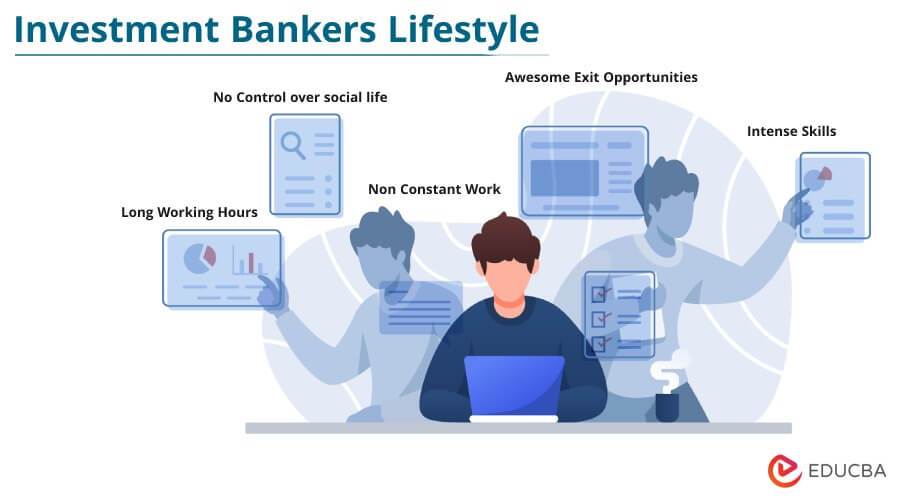Updated October 7, 2023

Investment Banker Lifestyle
Investment bankers are professionals who handle business decisions and financial transactions. They receive hefty pay(often six-figure), and everyone associates their lifestyle with luxury, opulence, and conspicuous consumption. Apart from the glamorous lifestyle, the investment banker’s lifestyle accompanies high pressure, careers, and demanding schedules. The industry is hugely competitive and deals with high-risk assets like bonds and stocks. Therefore, they must remain sharp and keep up with the changing markets. Knowing what an investment banker ticks if you plan to work in this industry is essential.
You could also become an investment banker if you have a knack for managing vast sums of money and ensuring the correct investment. This article explains the upsides and downsides of an investment banker’s lifestyle.
Investment Bankers Lifestyle – First, the DOWNSIDES
Long Working Hours
Investment bankers have a stressful and demanding lifestyle, with long working hours defining their profession. Investment bankers may work up to 80-100 hours per week, including holidays and weekends, depending on the firm’s specific function.
Non-Constant Work
Although Investment bankers may have a reputation for operating extended hours, their jobs are only sometimes routine. The demand for the job can fluctuate depending on the need of clients, market conditions, and the precise stage of a deal. Overall, the non-constant nature of investment banking jobs can offer opportunities and challenges for those in the industry.
New Work Assigned at Unpredictable Times
It is common for investment bankers to get new assignments or urgent client requests in the late afternoon or evening. It is due to several factors, such as a sudden change in the market condition or new development in a deal that needs immediate attention.
New work assigned at unpredictable times can make it challenging to balance a personal and professional life, especially for people with other responsibilities, such as social life and family.
Screwed at the Bottom of the Food Chain
Investment banking is hierarchical, with junior bankers(like associates and analysts) frequently at the bottom of the food chain. Analysts and Associates are responsible for due diligence, research, and financial modeling. They work under the supervision of senior bankers (managing directors and vice presidents).
The associates work long hours and perform tedious work that may need to be more exciting as the high-profile deals that MDs and VPs work on. This could also demotivate them if people do not respect and appreciate their efforts.
No Control Over Social Life
Investment bankers frequently have busy schedules that might make having a vibrant social life more challenging. Planning social events or attending get-togethers with family, friends, and relatives might be difficult when working long hours, traveling frequently, and dealing with unpredictable workloads.
Investment Bankers Lifestyle – Now the UPSIDES
Money, Money, and Money
Well, Well! What you would love about being an investment banker is the money :-). Very few careers pay you as well as the Investment Banking does. The salaries and bonuses one could earn are extraordinarily tempting and motivate you to make a career in this industry. A fresh MBA graduate, on average, earns between Rs. 3,00,000 – Rs 6,00,000 per annum. The large salary and incentives could go up to three to five times with your hard work.
Intense Skills
The skills you learn will teach you how to work and survive in this complex and challenging industry. Learning is intense & analysts will be working with some of the brightest & most demanding people on Wall Street. Working as an investment banker exposes you to top business leaders, providing a unique opportunity to understand their thoughts, create strategies, and make decisions.
Awesome Exit Opportunities
Apart from all this, the exit opportunities that Investment banking offers are great. It could be a great help if you want to look for other finance careers, such as private equity, venture capital, and hedge funds.
This article will provide necessary insights into an Investment Banker’s life. You can learn more about this industry in the Investment Banking Overview. Also, look at our professional Investment Banking Training Program.
